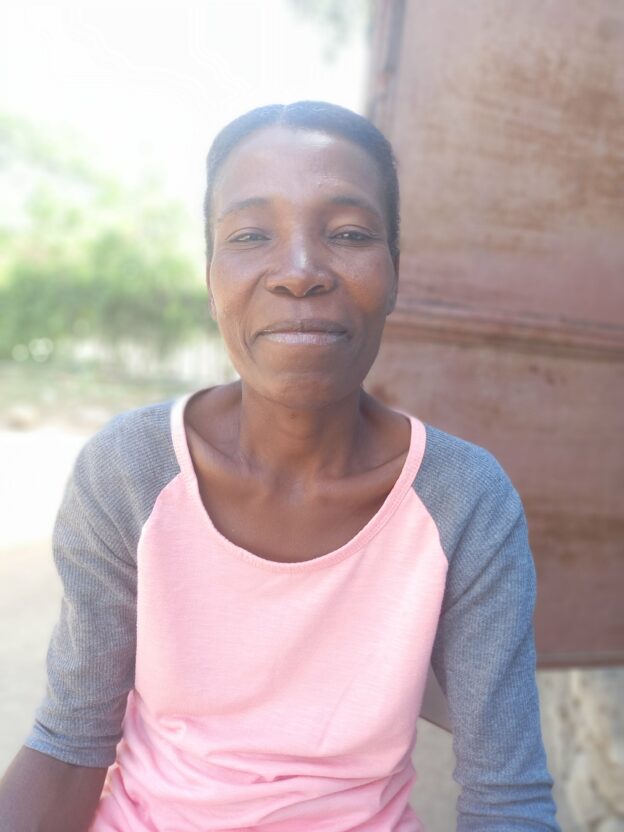Marie Therèse is a single mother of four from Kamas, in northern Gwomòn. The children have a couple of different fathers, but none of them helps her support the kids. “I am their mother and their father.”
Before she joined the CLM program about a year ago, she had really been struggling. She had once been able to support the family by buying groceries on credit on Gwomòn’s three market days, and then selling them out of a basket on her head as she walked around town. She would pay the suppliers at the end of the day. But that business disappeared a couple of years ago because the merchants who would sell her on credit disappeared from the market.
When she joined the program, she was supporting the family as best she could by purchasing large bunches of plantains out of her neighbors’ gardens on credit, and then lugging the plantains for sale in downtown Gwomòn. It worked to some degree, but as her children grew and their school fees increased it became harder and harder. Her oldest child, a daughter, was ready for the second-to-last year of high school this year, but Marie Therèse had to explain she couldn’t send her. She just didn’t have the money. The girl was understanding, but Marie Therèse was heartbroken. “She was already so far behind. The children who started with her are almost finished with university. But I couldn’t always send her.”
When she joined CLM, she asked the team to give her goats and small commerce, and she received two young female goats and money to use as investment capital. One of her goats had a pair of kids, and the other is pregnant, so that part of her work is flourishing, but her commerce has really been the key for her.
She started with 5,000 gourds, and determined to do what is called “kase lote.” That means to break up and divide into lots. It refers to a kind of business in which someone goes to the market with cash, buys whatever seems desirable in bulk, and then sells in small quantities at the same market. She might buy sweet potatoes or okra or cooking charcoal. She’ll buy it by the sack and sell in handfuls or small piles or bags — however the product in question typically sells. Gwomòn has a major downtown market three days per week, so she could earn well.
But she began to feel as though the business she had chosen was too limiting, both because she wouldn’t always find good merchandise and because it only offered her three days of income each week. So she took some money out of it and bought two different kinds of powdered laundry detergent and two different kinds of laundry soap. It would give her something to sell out of her home on non-market days. “People always need to wash their clothes.”
Soon she was carrying her laundry products to market on market days as well. “You can’t help selling them. People stop you on the way to the market and buy before you get there, especially if you’re careful always to speak nicely to everyone.” She’s been adding to the range of products she sells at home, too. Her business now includes some basic groceries, like spaghetti and sugar.
She’s used profits to buy an additional goat, which is already pregnant, and a small pig. And she had already used savings from her cash stipend to buy a couple of turkeys, so she’s starting to accumulate quite a bit of livestock.
And she has a clear plan. When she has enough goats and turkeys, she wants to sell some off to buy a heifer, and when the cow has a calf she’ll sell the calf to buy a motorcycle that she can rent to a taxi driver. The income it earns, together with additional livestock, should enable her to buy more land.
In the meantime, she already has enough money in her savings and loan association to send her daughter back to school next year. And she keeps driving herself forward with a simple motivating thought: “If CLM gave me two, I have to be willing to work hard enough to make it four. I never want to go back to the way they found me.”

I love that she discovered that if she spoke kindly to people on the way to the market that she would do well. Such a universal lesson.